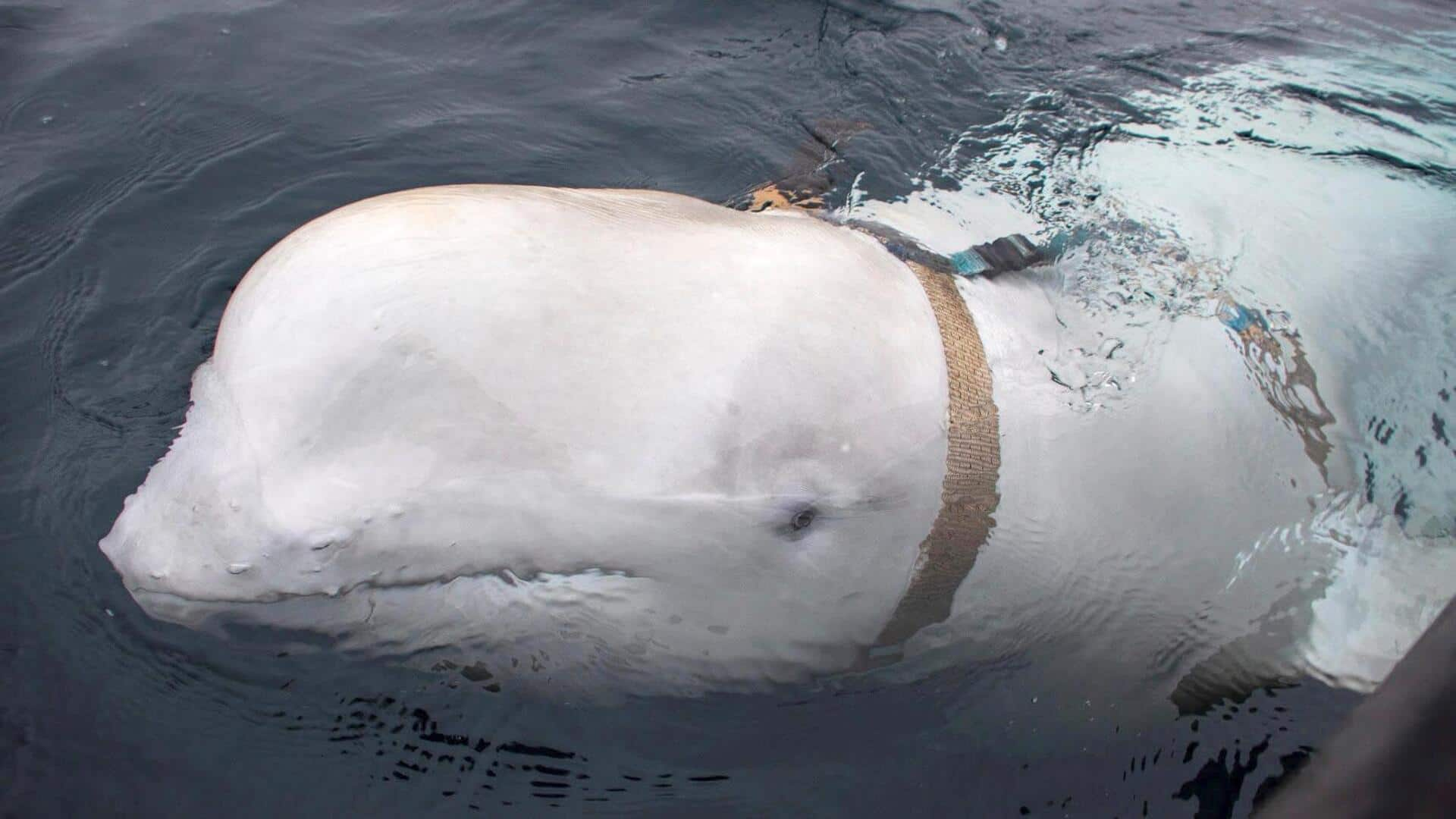
'Russian spy whale' Hvaldimir found dead in Norway
What's the story
Hvaldimir, a beluga whale that gained global attention for its suspected ties to Russian intelligence, has been found dead near Risavika in southwestern Norway. The discovery was made on Saturday afternoon by Sebastian Strand, founder of the non-profit organization Marine Mind. The cause of death is yet to be determined, but visible markings on the whale's body suggest possible attacks from birds or other marine creatures, according to The New York Times.
Emotional impact
Strand expresses sorrow over Hvaldimir's death
Strand expressed his sorrow over whale's death, stating "It's heartbreaking. He's touched thousands of people's hearts just here in Norway." He is now making arrangements to transport Hvaldimir's remains to a facility for preservation and further examination. The beluga whale first sparked public interest in 2019 when it was seen wearing a harness labeled 'equipment' from St. Petersburg, leading to speculation about its origins and purpose. There were theories of a Russian reconnaissance mission, but Russia never claimed the whale.
Whale's journey
Whale's unusual behavior and journey
Hvaldimir exhibited signs of domestication and was often seen in busier waters than typical for belugas, raising concerns among scientists and activists. Last year, he was spotted off the coast of Sweden after traveling southward from Norway. This journey took him away from food sources and toward more industrialized, potentially dangerous harbors. Despite these challenges, Strand reported that Hvaldimir had been enjoying a calm year until his sudden death. The Times reports the whale was 14-feet long and weighed 1,225kg.
Protection measures
Norway's efforts to protect Hvaldimir from human contact
In response to Hvaldimir's presence in a fjord near Oslo, Norway had previously urged its citizens to avoid any contact with the whale. The Norwegian Directorate of Fisheries issued a statement warning about the increased risk of injury due to human interaction, given the whale's location in a densely populated area. Strand and his team also made efforts to educate locals and tourists about Hvaldimir, promoting safety measures for his protection.